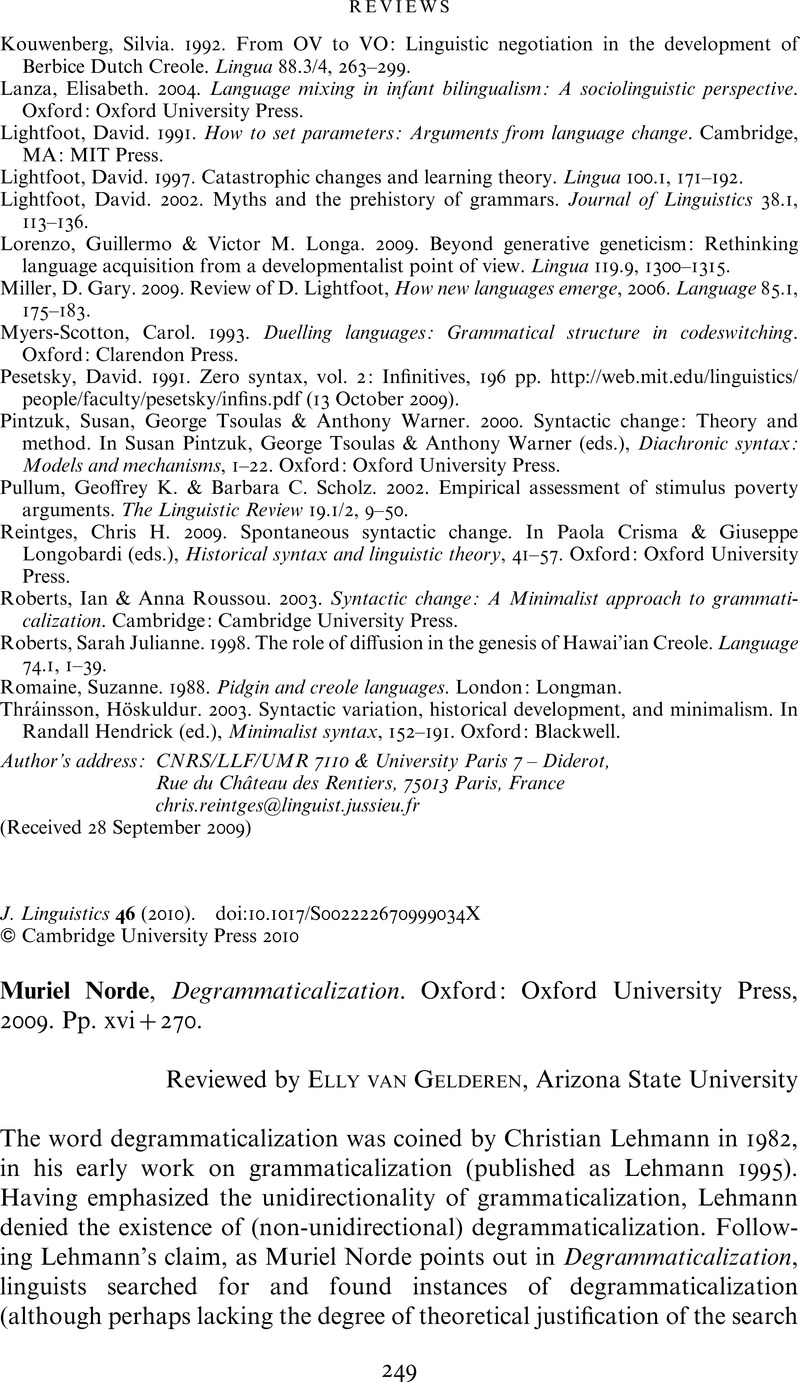Burridge, Kate.
1998. From modal auxiliary to lexical verb: The curious case of Pennsylvania German
wotte. In
Hogg, Richard M. &
Bergen, Linda van (eds.),
Historical linguistics 1995: 12th International Conference on Historical Linguistics, Manchester, August 1995; vol. 2: Germanic linguistics,
19–
33.
Amsterdam & Philadelphia:
John Benjamins.
Google Scholar 